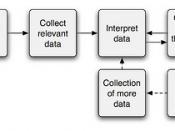The relationship between philosophy and the social sciences has a long history bearing some resemblance. Philosophical issues perhaps become more salient in periods of intellectual crisis; this is not to say that philosophical matters are relevant only at such times. Indeed, as far as sociology is concerned, still massively affect styles of sociological thinking, in establishing and refining the philosophical bases of more substantive enquires.
There have been many definitions of philosophy and as many different philosophical styles as definitions; and, from the point of view of securing a definition of philosophy, matters are made worse by the fact that there are special difficulties about defining philosophy that we shall not be in a position to understand until examine philosophical problems about definition in general (Hughes, 1990).
Qualitative research.
The lay notion of science and scientific research has been largely formed on the basis of natural science. The model for so-called 'survey analysis' is often understood as a simulation or application of the classic scientific experiment.
This is why it is natural that survey research offers the exemplar of what social research is conceived to be both by the general public and by many of those who have studied in the field. Another reason for the survey's role as the exemplar of social research is the dominant position it has held for so long. In the methodology section of the university curricula, for instance, there are two courses, one on 'quantitative' and another on 'qualitative' methods. Methodology in the social sciences is divided into a two-party system, in which all can choose sides according to their preferences. In other hand, it is indeed possible to make a distinction between qualitative and quantitative analysis, but both can be quite well applied in the same study and in analyzing the same data.


